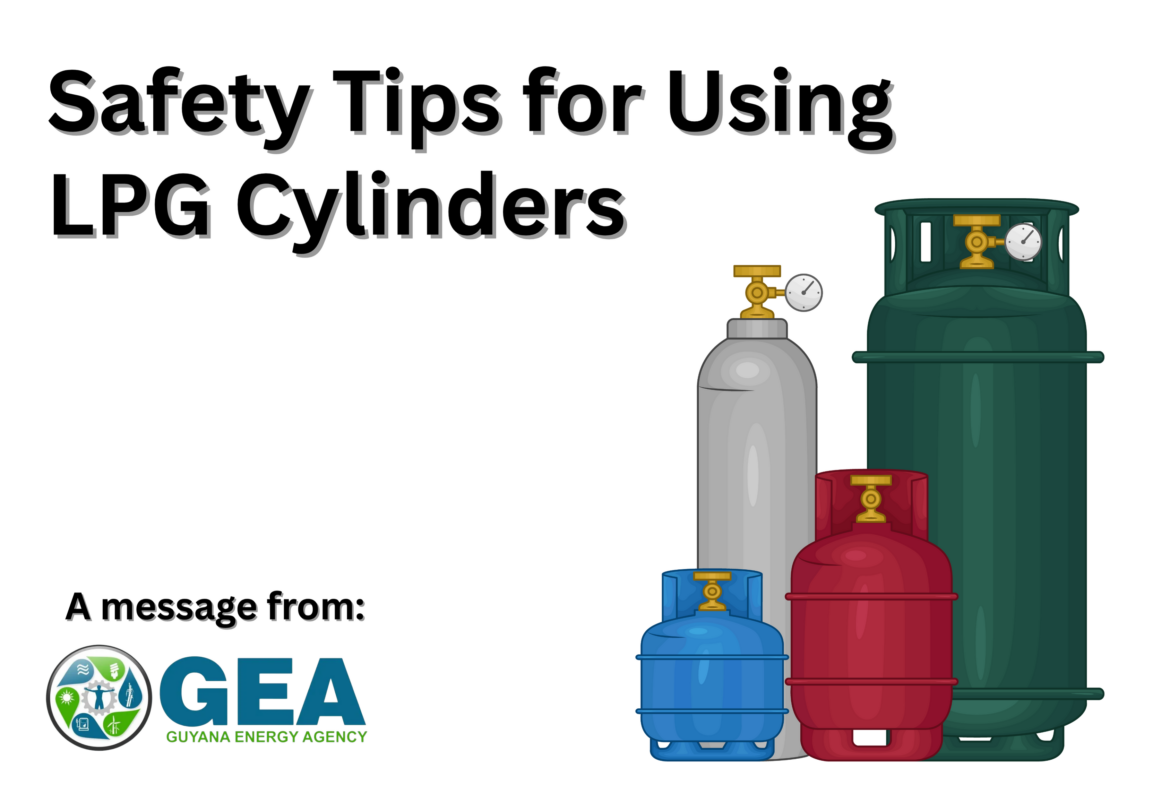Cooking gas, or liquefied petroleum gas (LPG), is a widely utilised and efficient energy source for cooking, heating, electricity generation, transportation, and various other purposes in many households. Despite its numerous advantages, cooking gas is highly flammable and poses severe risks if not handled with proper safety measures and caution.
Before You Take The Cylinder Home
- Examine the cooking gas cylinder to ensure that the supplier’s seal is properly affixed to the cylinder and the safety cap is intact at the time of purchase.
- Check the cylinder for any visible signs of damage, including sharp dents, cuts, corrosion, bulging, pitting or leaks.
- Ask the seller to perform a leak detection test using a gas detector or applying soapy water to the valve.
When Taking The Cylinder Home
- Do not throw, drop, drag, or roll the cylinder on its side when moving it. Instead, carry the cylinder by hand or transport it using a trolley.
- Transport the cylinder in an upright position with the valve facing upwards
When You and The Cylinder Arrive Home
- Store cylinders upright in a dry and well-ventilated area, away from combustible and flammable materials, heat sources (including heat-emitting appliances such as refrigerators, washers, dryers, generators, and water pumps.
- Store the cylinder in an upright position with the valve facing upwards.
- Only use regulators, hoses and clamps recommended by your gas provider (Guygas, Massy or Sol).
- After removing the security seal on the cylinder, check that the rubber seal on the cylinder’s valve is intact and properly fitted.
- Ensure that the stove’s knobs and the regulator are both in the OFF position before connecting or disconnecting the cylinder.
- Firmly attach the regulator to the top of the cylinder and ensure it is securely fitted according to the suppliers’ recommended operating instructions for attaching the regulator, hose, and clamps to the specific cylinders.
- Do not connect or disconnect a cylinder near a naked flame, smoke, or heat source (including heat-emitting appliances such as refrigerators, washers, dryers, generators, and water pumps etc).
When You Use the Cylinder
- Ensure that the knobs on the stove are in the OFF position before lighting a match. Light the match before turning the stove knob to the ON position.
- Ensure that the regulator attached to the cylinder is in the OFF position when the cylinder is not in use. Also, check that the stove knobs are in the OFF position during and after cleaning the stove to prevent any hazards.
- Leaving the stove knobs unintentionally in the ON position can lead to gas leaks or accidental ignitions, which could result in a fire or explosion.
Maintenance and Inspection
- Regularly inspect the regulator and hose to ensure they are in good condition and free from damage or cracks. Hoses should be replaced every 2 to 5 years, while regulators should be replaced every 5 years, depending on the wear and tear.
- Regularly inspect the cylinder to check for gas leaks by applying a solution of soapy water, (such as a mixture of dishwashing liquid and water), to the cylinder valve. Look for bubbles, which indicate a gas leak.
- If the cylinder or gas connections show signs of damage or corrosion, replace them immediately. It is important to schedule routine maintenance checks for the cylinder and gas connections to identify any potential issues before they become serious problems.
What To Do If You Suspect A Gas Leak
- If you smell cooking gas, it is possible that there is a gas leak. Also, if you hear a continuous hissing sound from a cylinder, it is possible there is a leak.
- DO NOT LIGHT THE STOVE IF YOU SMELL GAS OR SUSPECT THAT THERE IS A GAS LEAK.
- If the stove is on, TURN IT OFF. Do not panic. Open all doors and windows to ventilate the rooms and allow the gas to dissipate.
- Do not operate any electrical equipment until the area is properly ventilated.
- Turn off the regulator on the cylinder, disconnect the cylinder and take it outdoors.
Contact the Guyana Fire Service and the gas supplier (Massy, Sol or Guygas) for additional information and assistance, using the following emergency contact numbers:
| Entity | Emergency Number |
| Guyana Fire Service | 912 |
| Guygas | 638-4427 |
| Massy Gas Products Guyana Ltd. | 600-0839 |
| Sol Guyana Inc./HSE Support for agency contact or assistance. | 600-1315 |
LPG safety is everyone’s responsibility.
A message from the Guyana Energy Agency (GEA).

